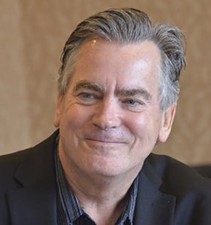The Journal of The Electrochemical Society is publishing a focus issue in connection with the Pulse and Reverse Pulse Electrolytic Processes 4: In Honor of EJ Taylor symposium at the 244th ECS Meeting.
This focus issue is in honor of Dr. E. Jennings (EJ) Taylor, a pioneer in the development of industrial applications of electrochemical deposition, surface finishing, and conversion technologies. Dr. Taylor has made significant contributions to the development and commercialization of industrial electrolytic processes, with a specific focus on pulse and pulse reverse electrolytic processes used to enhance a variety of electrochemical processes, coupled with the design and development of scalable, modular apparatus. Dr. Taylor founded Faraday Technology, Inc. in 1991, with a mission to change the focus of electrochemical technologies from the art of complex chemistries to the science of pulse and pulse reverse electric fields. He has been a leader in research into surface finishing technologies, including electrodeposition and electropolishing, as well as the development of electrochemical conversion, recycling, and decarbonization technologies. Dr. Taylor has received awards including the 2013 Presidential Green Chemistry Challenge award for electrodeposition of chrome coatings for wear applications, 2011 R&D 100 award for electrodeposition of Co-Mn alloy coating for solid oxide fuel cells as part of a team with DOE NETL, and 2007 Blum Scientific Achievement award of the National Association of Surface Finishers.
This issue publishes the latest electrochemical science and engineering innovations focusing on industrial applications, with a particular focus on the utilization of pulse and pulse reverse electric fields. Submissions concerning all aspects of industrial electrolysis are welcome, including, but not limited, to:
- Theory and modeling;
- Additive processes, such as electrodeposition of metal and alloy coatings, including nanoscale and catalyst materials, electrophoretic deposition of ceramics, nanocarbons, and dielectric materials;
- Subtractive processes, such as electrochemical polishing, machining, deburring, and through-mask etching;
- Electrochemical reactions:
- Electrification of chemical manufacturing processes
- Decarbonization
- Recycling, sequestration, and sustainability
- Environmental remediation and waste treatment
- Energy efficiency
- Electrochemical apparatus/rectification design and build
This issue is open to all authors interested in submitting review, critical review, perspective, methods, communication, or original research articles in the following topical interest areas: Batteries and Energy Storage, Electrochemical/Electroless Deposition, Electrochemical Engineering, Organic and Bioelectrochemistry, and Physical and Analytical Electrochemistry, Electrocatalysis, and Photoelectrochemistry.
Accepting Submissions: October 27, 2023 | Submission Deadline EXTENDED: April 26, 2024
Guest Editors
Maria Inman, Faraday Technology, Inc., U.S.| mariainman@faradaytechnology.com
Sudipta Roy, University of Strathclyde, U.K.| sudipta.roy@strath.ac.uk
Andreas Bund, Technische Universität Ilmenau, Germany | Andreas.Bund@tu-ilmenau.de
Elizabeth Podlaha-Murphy, Clarkson University, U.S. | epodlaha@clarkson.edu
John Harb, Brigham Young University (retired), U.S. | john.naim.harb@gmail.com
Timothy Hall, Faraday Technology, Inc., U.S. | timhall@faradaytechnology.com
Katherine Ayers, Nel Hydrogen, U.S. | kayers@nelhydrogen.com
Santosh Vijapur, Faraday Technology, Inc., U.S. | santoshvijapur@faradaytechnology.com
Technical Editor
Paul Kenis, University of Illinois Urbana-Champaign, U.S. | paul.kenis@electrochem.org
Editor-in-Chief
Robert Savinell, Case Western Reserve University, U.S. | rfs2@case.edu
Articles are published in a standard issue of the journal as they are accepted. If selected at submission, accepted papers are published online in the ECS Digital Library on IOPscience within 24 hours of scheduling for publication. The version of record is published online within approximately 10 days of final acceptance.
Visit the ECS website for author submission instructions and requirements for each article type.
OPEN ACCESS: Authors choosing to publish open access agree to pay an article processing charge (APC) if their papers are accepted. APCs are discounted by 75 percent for ECS members and waived for authors from ECS Plus subscribing institutions. Check if your institution subscribes to ECS Plus. Discounts are applied at the time of payment.


